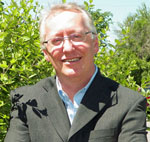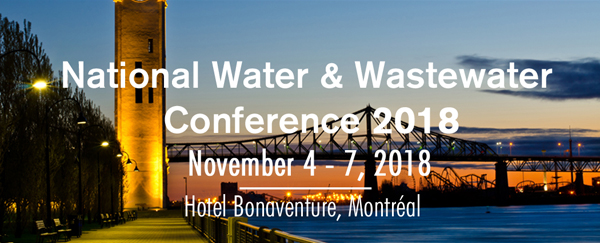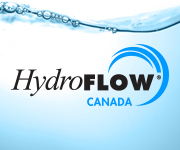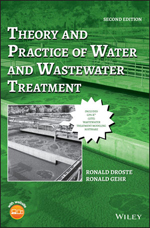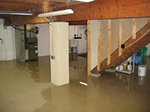 |
||||||||||||||||||||||
| Subscribe | Past Issues | www.cwwa.ca | Water Source Magazine | ||||||||||||||||||||||
|
CWWA News
As the final program has come together for the National Conference in Montreal this November, a theme on climate change is arising. In addition to some panel discussions in multiple streams, we are book-ending the event with a focus on climate change across Canada.
Federal Initiatives
Water Canada The Government of Canada has announced new funding for the Lake Winnipeg Basin Program to be distributed over the next four years. Lake Winnipeg generates millions of dollars of revenue through hydroelectricity, recreation, and commercial freshwater fishing. And, it’s a significant cultural, social, and economic resource to Indigenous Peoples and communities in the Lake Winnipeg Basin. Member News
Core infrastructure such as water and wastewater systems provide essential services to communities. Nevertheless, municipalities sometimes struggle to make the necessary investments to keep the physical assets in an adequate condition and operating efficiently.
Water Canada The Region of Waterloo in Ontario was one of 32 North American water utilities that have been recognized for transformational work in community engagement, watershed stewardship, and recovery of resources such as water, energy, and nutrients through the Utility of the Future Today program.
The second edition of the popular textbook "Theory and Practice of Water and Wastewater Treatment" (John Wiley & Sons) will be available by the end of August, just in time for the fall semester. Co-authors are Ronald Droste and Ronald Gehr. The book has been fully updated and is suitable as a senior-level undergraduate text, thoroughly covering both water and wastewater treatment. Included is a fully-functional Lite version of the internationally acclaimed GPS-X wastewater treatment modelling software from Hydromantis. Available as an e-book and hard cover, with solutions manual for instructors.
The Guideline was prepared to assist relevant stakeholders in the mitigation of basement flood risk for new and existing National Building Code of Canada (NBCC) Part 9 residential buildings. Development of the Guideline was motivated both by current basement flood risk and by the potential for increased risk in many regions of Canada under changing climate conditions. On July 31, 2018, the federal government issued "Update on the output-based pricing system: technical backgrounder." This innocuous sounding 'update' outlines a highly significant scaling-back of carbon pricing requirements for some of the country's heaviest energy users, and signals that more easing could well be on the way. The guideline technical document on chromium in drinking water is now available on Health Canada's web site. On July 19, 2018, the Minister of Environment and Climate Change, Catherine McKenna, announced $8.95 million in funding over four years for 36 local on-the-ground projects under the Great Lakes Protection Initiative. The Initiative supports projects which will help restore areas of concern, prevent toxic algae, and reduce the release of harmful chemicals. Provincial News
Snippings & Clippings
Water Canada Yesterday, the Government of Canada reaffirmed its commitment to stem to the spread of aquatic invasive species, announcing new funding for research, education, and public outreach on the problem of zebra and quagga mussels. The Sustainable Joe Podcast 2084 continues to offer provoking episodes on Environmental Issues. The latest issue explores sustainable fashion. From unpacking the complexities of the fashion industry to providing strategies for you to be a better shopper; if you are curious about the future of fashion, this episode is an honest and value added listen. IWA Source The UN has warned that 80 per cent of dirty wastewater runs untreated into lakes and rivers, negatively impacting nature, wildlife, human health and recreation. Yet from another angle, it may also demonstrate a new way to answer the old question: what is clean water really worth? IWA Water Source Eight years ago, the legendary founder of Intel Corporation, Andrew S. Grove, published a book that could have been written explicitly for established players in today's global water and sanitation industry. Water Canada Some older Canadian homes still have lead water pipes, posing an important and complex public health challenge. About one per cent of water service lines in Edmonton, most of which were built before 1960, are still lead on the utility's side. At that time, lead was an option available to homebuilders for water lines. Today, the preferred materials are copper and plastic. Water Canada Vancouver's City Council has approved three recommendations to help prepare the city's vulnerable areas for sea level rise by planning for and implementing coastal flood protection. Water Online Guidelines regarding the practice of running water to flush out lead in homes may not be effective, a new study finds. CBC Radio Fatbergs are giant congealed masses of grease, oil and other detritus improperly flushed into city sewers. A program in London, Ont., aims to educated people on how to properly dispose of fatberg-feeding materials to prevent damage to the city's underground infrastructure. Water Online With algal blooms forcing the closure of popular beaches in Vermont this summer, some critics are blaming sewage plants for the problem. The Conservation Law Foundation (CLF) is appealing nine sewage treatment plant permits that have been approved by the state. The environmental group says these wastewater treatment facilities dumping phosphorus into Lake Champlain are partially responsible for the blooms, WCAX reported. |
||||||||||||||||||||||
